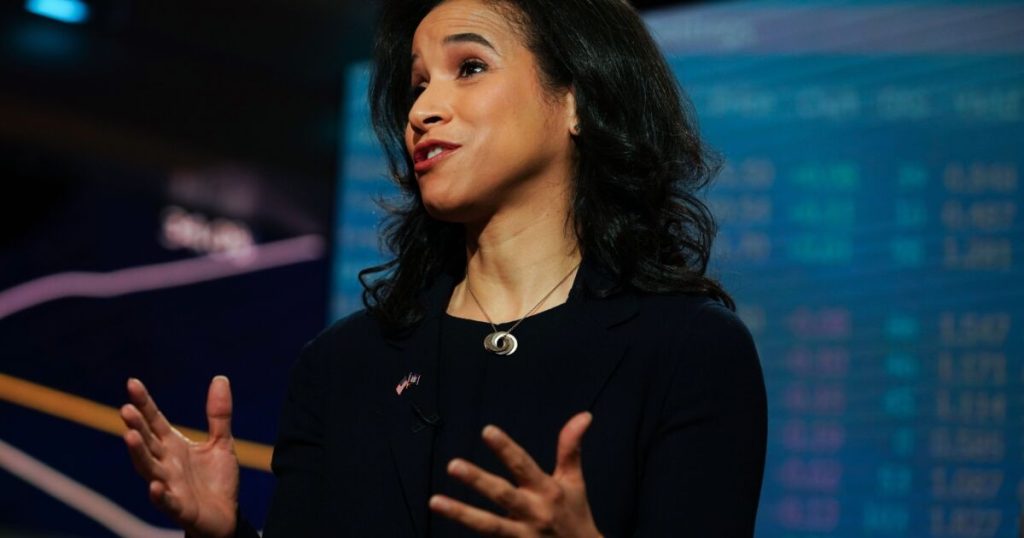Christopher Goodney/Bloomberg
The coming year is likely to bring opportunities for banks to work with digital assets and crypto companies, according to several speakers at American Banker’s
“Under the new administration, very likely banks will be able to provide custody services for digital assets,” said Caitlin Long, founder and CEO of Custodia Bank in Wyoming. She also predicted banks will issue stable coins in order to provide faster and cheaper payment services, both domestically and for foreign exchange.
“It’s far faster and more traceable and more efficient from an operations perspective in foreign exchange to use these technologies,” Long said.
Superintendent of the New York State Department of Financial Services Adrienne Harris also expects the ice to melt on banks’ ability to work with digital assets and crypto companies.
For one thing, she expects one of the two-dozen-plus crypto bills in front of Congress to get passed in 2025.
“I expect Congress will move forward in trying to get something across the finish line next year,” Harris said. “But we’re also very clear that states should not be preempted. There is a role for nimble states like New York to play in regulating this space.” Her department has issued guidance to New York banks that want to engage in virtual currency business activities. For one thing, they need to apply for her department’s approval first.
In a related vein, several speakers at the summit said they expect the new administration will put an end to the recent era of de-banking crypto companies, for instance through the dozens of “pause” letters the FDIC sent to banks in 2022 telling them to stop crypto activities.
“I think the new administration will take the politics out of bank supervision, which I think is a gigantically important thing,” said Faryar Shirzad, chief product officer at Coinbase. “To have a situation where with every incoming administration, we all have to guess as to which industries they may or may not like, and then figure out if those industries are going to be potentially cut off from banking services is just extraordinarily damaging to a well-functioning economy and well-functioning society, and I think that will immediately come to an end.”
President-elect Donald Trump said during his campaign that he wants the U.S. to be a leader in crypto technology, Shirzad pointed out.
“And just the other day, he talked about how China and other markets are moving quickly to assume leadership in that space,” Shirzad said. “I think that political message, that tone from the top, matters a lot, because then it informs 100 decisions that regulators at all levels of government have to make about whether they allow this activity or that activity.”
Harris also said regulators shouldn’t be de-banking industries.
“It’s not the regulator’s job to tell institutions who they can and cannot do business with,” she said. “Our job is to say you need to have the appropriate risk framework in place and be executing on that accordingly, based on your risk appetite as an institution.” Bank Secrecy Act and anti-money laundering rules apply to crypto companies, and New York regulators have penalized a few crypto companies for BSA/AML shortcomings, she said.
Sateesh Kumar Challa, head of digital transformation office at Société Générale, took a cautiously optimistic view.
“There is no specific timeline on which banks can say, okay, on such-and-such date they can be completely safe and venture into it,” he said. “I think if the demand is high, the banks have to embrace it. And once the demand from the institutional clients comes in, they will have to formulate more robust procedures and frameworks in terms of monitoring the risk and the compliance.” They will need to work with regulators to shape new rules around this, he said.
